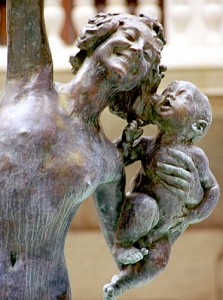 Child support, alimony, family support: it is all non dischargeable in bankruptcy.
Child support, alimony, family support: it is all non dischargeable in bankruptcy.
One cannot get out of paying these debts in bankruptcy.
If you are the party to whom support is owed, don’t take a bankruptcy filing as a threat to your rights to payment.
A bankruptcy discharge cannot relieve a party who owes support from that obligation.
If you are the person who owes back support, bankruptcy might help you get control of your support obligations by eliminating other creditors who compete for your dollars.
A Chapter 13 plan could provide time and space to get current on support arrears.
What else bankruptcy can do
Bankruptcy can provide a forum in which any disputes about what is owed or has been paid can be determined.
A bankruptcy judge won’t revisit support orders made by a family law court, or modify support for the future, but might sort out accounting issues as to the amounts owed.
In Chapter 13, support is a priority claim, which must, by law, be paid in full over the life of the Chapter 13 plan. Support has a higher priority than even taxes.
The automatic stay protects you from all creditor action to collect back debts while you propose and perform on a Chapter 13 plan.
Too often, the financially stressed spouse who should be paying support can’t for reasons of job loss, illness, etc. If you owe support, the biggest mistake you can make is not attempting to get the court ordered support modified to fit the current circumstances.
The current order will control what is owed each month, , until it is changed. It is virtually impossible to get a court to retroactively modify a support order, or to get any governmental agency collecting back support to compromise.
So, if circumstances have changed and you truly can’t pay at the ordered level, go back to court to get it adjusted.
Sticking your head in the sand on this issue is a mistake that will follow you forever until paid.
Read more
Introduction to family law, divorce and bankruptcy
Filing bankruptcy without your spouse
Image courtesy of David Paul Ohmer
